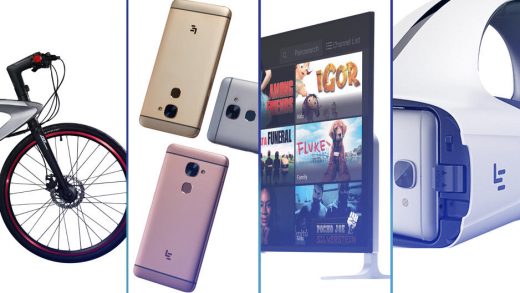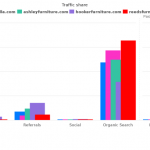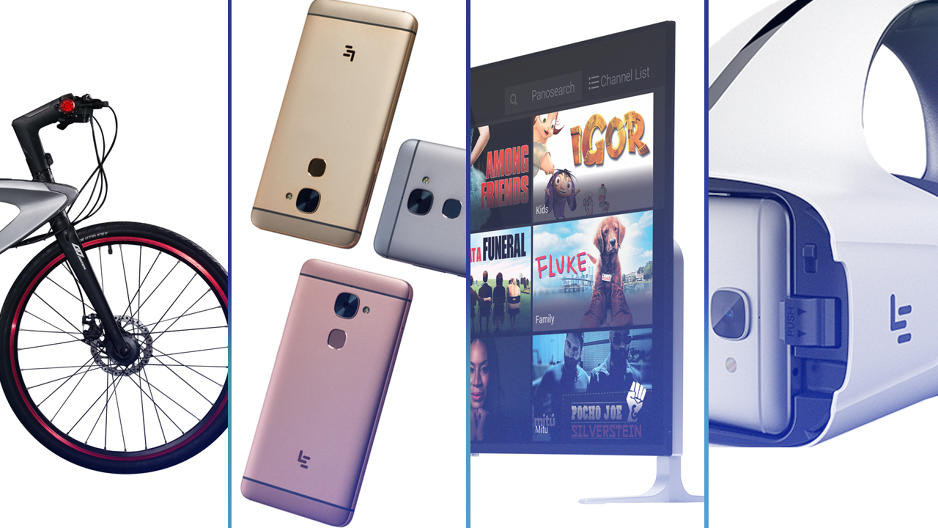China’s LeEco Says It’s One Of A Kind But A Lot Like Amazon
Danny Bowman has a tough job that he seems to relish—explaining to Americans a company from the other side of the globe that insists it is like no other company. That’s been his task since February, when he left Samsung Mobile and became chief revenue officer at LeEco, the omnibus Chinese tech and media company that formally celebrated its entry into North America with an exhaustive exhibition in San Francisco this week.
With a shaved head and graying goatee, Bowman is middle-aged but very fit, with muscular arms stretching the sleeves of his black LeEco T-shirt. Wearing jeans, he has a casual manner not uncommon in Silicon Valley and similar to the LeEco’s founder and CEO, Jia Yueting, who was dressed almost identically onstage with him.
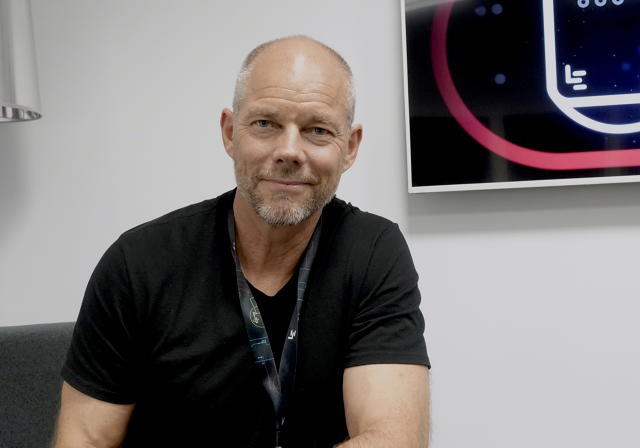
After an hour and a half of presentations by Jia, Bowman, and many of their colleagues, I asked Bowman to sum it all up with LeEco’s elevator pitch. “Apple, Samsung, Google, Tesla, Uber, Netflix, and Paramount Pictures—we’re a little bit of all of those,” he says. That’s quite an ambitious claim, but LeEco is certainly diverse, encompassing TVs, smartphones, a bicycle, a car, a movie studio, cloud storage, ride-sharing (in China), and an e-commerce site, among other ventures.
The company began in 2004 as LeTV.com, an online video streaming service. (“Le” comes, not from French, but from the Chinese word for happiness.) From there, it spread into original content creation and then into making smart TVs—a lot like Netflix, which spun off its video device business as Roku. Jumping into smartphones in 2015 wasn’t a big stretch for a TV maker. (Vizio, which LeEco purchased in July, made a foray into smartphones in 2011.)
But an autonomous electric car and a carbon-fiber hybrid bike? “There will be more connected cars than non-connected cars by 2020,” says Bowman. “The vehicle is literally another part of the internet,” he says. The company’s bike is also online, with a 3G cellular connection for GPS, exercise data uploads, and an online finder feature if the bike is stolen.
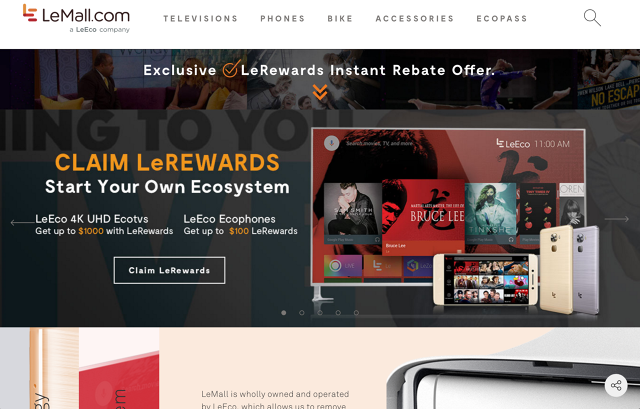
“The real key to all of this, we’re an internet and content first company, and we try to created a very unique experience,” he says, “and for that to happen, that’s why we do vertically integrated hardware,” says Bowman, claiming that no one else does this. When I mention competitors like Sony, which owns a movie and TV studio, a record label, the recording devices that capture video and audio, and the consumer electronic devices that play them. Bowman is unimpressed. “It was a very hardware-centric approach, vs. an internet content experience approach,” he says.
“The American company example is Amazon,” says Bowman. “They’ve done a lot of different integrations, a lot of disruption.” LeEco also has an e-commerce site, called LeMall.com. In a way, it’s just like Apple’s online store, selling the company’s own main hardware and accessories. But LeEco seems to have more afoot. In San Francisco, it announced a membership program called EcoPass that entitles members to discounts, unlimited photo and video storage, extended warranties, and unlimited video viewing, among other perks.
EcoPass is included with purchase of a TV or smartphone for from three months to a year, but Bowman says that it could evolve into a paid annual membership, like Amazon Prime. Bowman also promises a “disruptive” system of content partnerships, debuting on November 2. It may make LeMall more of an online content source.
LeEco even has its version of Amazon Web Services, an online storage and computing resource called—what else?—Le Cloud. Amazon comparisons fade when it comes to artificial intelligence, though. The American giant uses sophisticated algorithms to customize its experience to users, who increasingly interact with Amazon through its Alexa voice service. No problem, according to Bowman. “I would tell you, anything around the internet that’s related to AI, machine learning, software-driven approach, big data, you’re going to continue to see us evolve,” he says.
Fast Company , Read Full Story
(11)

